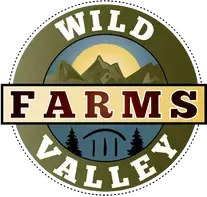|
The story of Wild Valley Farms began over a century and a half ago, when founders first set foot in the U.S., they were driven by their Wild Valley Farms faith to the rugged terrains of Utah. Settling in the quaint town of Croydon, they embarked on a humble journey with chickens, a handful of cows and sheep.🐄🐑 With the evolving time the modest chicken farm evolved into a sprawling sheep and cattle ranch. Today, the farm, managed by Albert Wilde and his two sons, boasts over 200 cattle and a staggering 2,600 sheep. Their partnership in 2013 with Woodscape of Utah, a landscape product manufacturer, marked the beginning of a new chapter. This collaboration gave birth to a premium compost, and as demand grew, so did their vision. Recognizing the increasing desire for natural gardening products, Wild Valley Farms was officially established in 2015, bridging the gap between conscientious consumers and all-natural farm products. Experiments with WoolOne of the farm's groundbreaking products is the wool pellet. Drawing inspiration from their long-standing tradition of sheep farming in Utah, the Wildes ventured into creating an all-natural fertilizer using wool. Initial experiments were nothing more than Albert trying to help his wife grow healthy plants without the need of constant watering. “When we first began experimenting with wool, we were using it in its purest form. We placed some of the wool around our plants just before going on holiday. When we returned the plants were thriving, you never would have been able to tell they had not been watered for over a week,” said Albert. This led Albert down a path of researching the benefits of wool. Further research unveiled its rich nitrogen content and slow decomposition rate, making it an ideal fertilizer. Moreover, wool's exceptional water-absorbing capacity, up to 20 times its weight, ensures reduced watering needs for plants. As it absorbs water, wool expands, enhancing soil porosity and promoting robust root growth. The result? Thriving, healthy plants that require no additional fertilizers. Wild Valley Farms, with its commitment to sustainable farming practices and community education, stands as a testament to the enduring spirit of American farming and the boundless possibilities of innovation. Wild Valley Farms' Wool Pellets: A Sustainable Gift for the GardenWool has long been cherished for its warmth and versatility in the textile industry. However, its application extends beyond clothing and blankets. Wild Valley Farms has introduced an innovative use for wool in the form of wool pellets, a sustainable solution for garden enthusiasts.
What are Wool Pellets? Wool pellets, as introduced by Wild Valley Farms, are a product derived from waste wool. This technology transforms wool, which would otherwise be discarded, into valuable pellets for gardening. The concept of using wool in gardens isn't new. Gardeners have recognized wool's potential as a fantastic fertilizer and weed barrier for years. Wool's inherent properties allow it to retain moisture, deter snails, and slowly release nitrogen as it biodegrades. With wool pellets, instead of placing wool on top of plants, gardeners can now integrate wool directly into the soil, enhancing its quality and fertility. Benefits of Wool Pellets 1. Moisture Retention: Wool's natural ability to retain moisture ensures that the soil remains hydrated, reducing the need for frequent watering. 2. Natural Fertilizer: As wool biodegrades, it releases nitrogen, enriching the soil and promoting plant growth. 3. Pest Deterrent: Wool pellets act as a natural deterrent for snails, protecting plants from these common garden pests. 4. Eco-friendly: By repurposing waste wool, these pellets offer an environmentally friendly alternative to traditional fertilizers. Product Specifications Wild Valley Farms' wool pellets are graded as a 9-0-2 fertilizer. This means they contain 9% water-insoluble nitrogen, 1% available phosphate, and 2% soluble potash. The company claims that using their wool pellets can reduce watering by up to 25%, all while maintaining soil porosity. For those interested in purchasing, an 8-ounce bag of these wool pellets retails for $13.99 and is estimated to cover about 15 square feet of soil or nourish 6 gallons of soil. A Sustainable Choice The production of wool pellets is not just about gardening; it's about sustainability. During the wool processing phase, known as skirting, certain parts of the fleece, like the "bellies and tags," are set aside. These parts, which come from around the sheep's belly and rear, are usually discarded or sold for a minimal amount. By transforming these parts into wool pellets, Wild Valley Farms is ensuring that every bit of the sheep's fleece is utilized, reducing waste and promoting a circular economy. Moreover, gardeners should note that these pellets carry the authentic fragrance of sheep. While this scent is noticeable when the pellets are fresh, it becomes discreet once blended into the soil. In conclusion, Wild Valley Farms' wool pellets are a testament to the endless possibilities of wool. They represent a fusion of tradition and innovation, offering gardeners an eco-friendly solution that benefits both the environment and their gardens.
0 Comments
Leave a Reply. |
Archives
May 2024
Categories
All
|


 RSS Feed
RSS Feed

